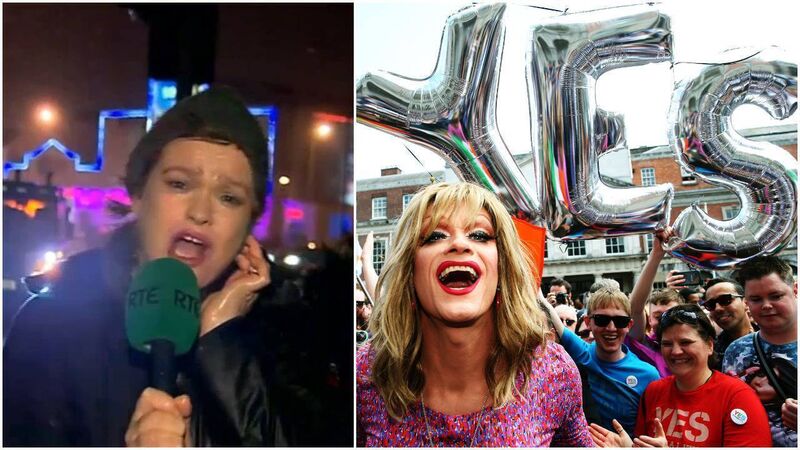Unnecessary journeys and marriage equality: Reeling in the Years revisits 2015

Reeling in the Years 2015 showed moments such as Teresa Mannion's instantly-iconic news report during Storm Desmond (left) and Ireland's historic vote to legalise same-sex marriage (right).
Storm Desmond and Storm Frank wreaked havoc across the country but a highlight from the bleak weather was Teresa Mannion’s much-quoted weather report for RTÉ.




